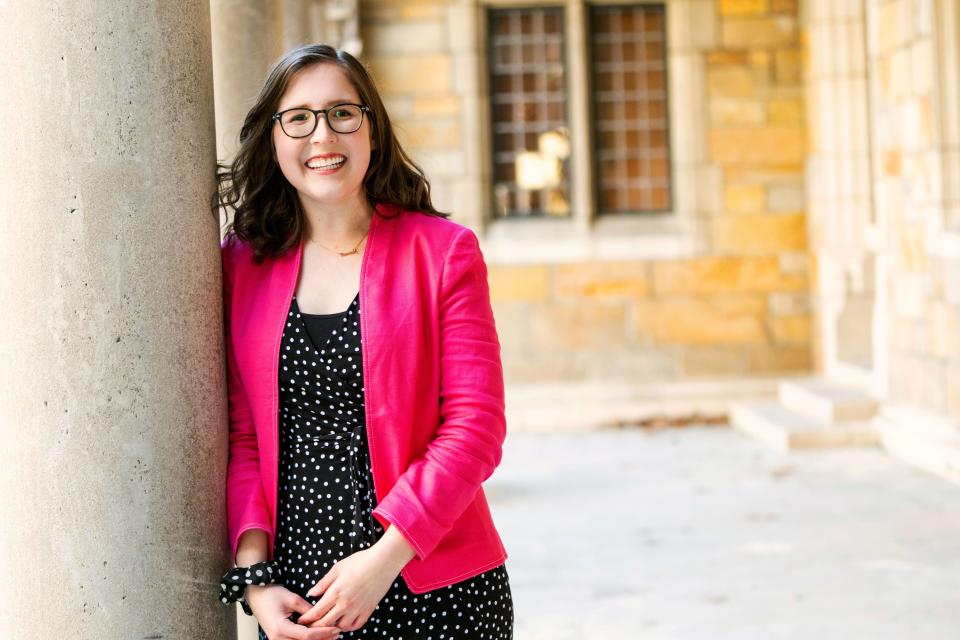University of Michigan, students reach class-action settlement over sex misconduct reform
Attorneys representing students and the University of Michigan reached a landmark class-action settlement that aims to reform the way the university addresses and prevents sexual misconduct.
After 17 months of negotiation, the university agreed to form and fund a Coordinated Community Response Team (CCRT), a roughly 30-person committee composed of community and campus members. They will be charged with comprehensive oversight of the university's response and prevention of campus sexual harassment and gender-based violence.
Filed in May 2021, this suit was one of many brought against the university in the months following public knowledge of the sexual misconduct committed by former U-M doctor Robert Anderson. During his employment from 1966 to 2003, Anderson abused thousands of students in his role as university health service director and athletics team physician. He died in 2008.
Unlike the group of individual suitsbrought by 1,050 Anderson survivors, who reached a $490 million financial settlement with the university in January, the plaintiff in this lawsuit was a current student, Josephine Graham, acting on behalf of the future U-M student population.
"It's a first step in establishing more accountability, transparency, and importantly, community decision making when it comes to the history of sexual misconduct and then the policies and procedures being implemented to address this issue on campus," Graham said.

Jonathan Selbin, an attorney with the Lieff Cabraser Heimann & Bernstein law firm, said the CCRT will be created following final approval from the court, which is likely to happen this summer or fall. U-M students will receive notice of the settlement.
While the settlement requires the CCRT to exist for five years, Selbin said he hopes the university will continue it in perpetuity.
U-M President Mary Sue Coleman in a statement called the creation of the CCRT an "important step toward our vision of becoming a national leader in protecting our community from inappropriate behavior and sexual misconduct."
E. Powell Miller, an attorney with the Miller Law Firm, said: "While this case in negotiation was long and difficult, in the end, the University of Michigan showed a high level of professionalism to get this done.
"It's time for healing now, and I'm very optimistic that this settlement will dramatically reduce the chances that another Anderson appears in the future at this campus," Miller said.
More: Report: U-M could have stopped Anderson sexual assaults on athletes
More: Schlissel dragged feet on independent oversight of sexual misconduct at U-M, sources say
'Best in class reforms'
Nancy Cantalupo, professor at Wayne State University Law School and Title IX expert serving on the plaintiff's legal team, said CCRTs are known to be the most reliable method of addressing and preventing sexual misconduct on campus. For example, institutions who receive grants from U.S. Department of Justice’s Office on Violence Against Women are required to establish CCRTs.
Selbin said the settlement will implement "best in class institutional reform to address and prevent sexual misconduct both now and in the future." The reforms will center on policy and practice changes.
"It adds transparency and new voices into the policymaking process," Selbin said. "We think (this) will help ensure a safer campus environment for everybody."
Due to its comprehensive approach, Cantalupo said the CCRT requires a wide, inclusive membership of non-university-affiliated Title IX experts, survivors, university faculty, representatives of the Washtenaw County Prosecutor’s Office and SafeHouse Center, community members, and select members of the administration.
Seven current U-M students will serve on the CCRT, which, Cantalupo says, will give students a direct line to the university administration to communicate their concerns and needs.
CCRT leadership balances objectivity with community buy-in, Cantalupo said. One of the three co-chairs will be Title IX expert Rebecca Leitman Veidlinger, who is unaffiliated with the university. Sandra Levitsky, U-M professor of sociology, will serve as the internal tenured faculty co-chair, whose job security can buffer potential pressure from the university from CCRT decision-making. Tamiko Strickman, currently executive director of the U-M Equity, Civil Rights and Title IX Office, will hold the internal administrator co-chair position.
Repairing 'broken trust'
Cantalupo said CCRTs and the institutions they aim to reform, are held accountable through regular publishing of the CCRT's work. This transparency, and subsequent increased access to their progress by the community, ensures CCRTs are more effective at changing campus sexual assault prevention measures than external watchdog groups hired by the university.
"The external person has various incentives to do the kinds of things that an external watchdog would do, but they're going to get better information," Cantalupo said. "And the internal folks are set up to have a role and a voice in the process. Whereas, just having an external watchdog doesn't provide that kind of facilitation."
Graham said students on campus "don't trust like these bodies of the universities hiring to investigate them," adding these firms are unable to repair the "broken trust at the school."
Some financial compensation for the CCRT administration will be provided by the university at the time of the settlement to appropriately compensate the external co-chair and internal faculty co-chair, "so this is not an uncompensated extra duty on top of everything else," Cantalupo said.
The other class action lawsuit, originally filed in March 2020 on behalf of two Anderson survivors, seeking both "monetary damages and equitable relief" has been stayed by the court as part of the mediation process, Selbin said.
Although the two John Does from the original class-action lawsuit were not involved in this settlement, Selbin said they were consulted throughout the process and "strongly and unequivocally support the settlement."
Elissa Welle is a breaking news reporter. You can email her at ewelle@freepress.com or find her on Twitter at @ElissaWelle.
This article originally appeared on Detroit Free Press: U-M settles suit about sexual assault prevention reform

